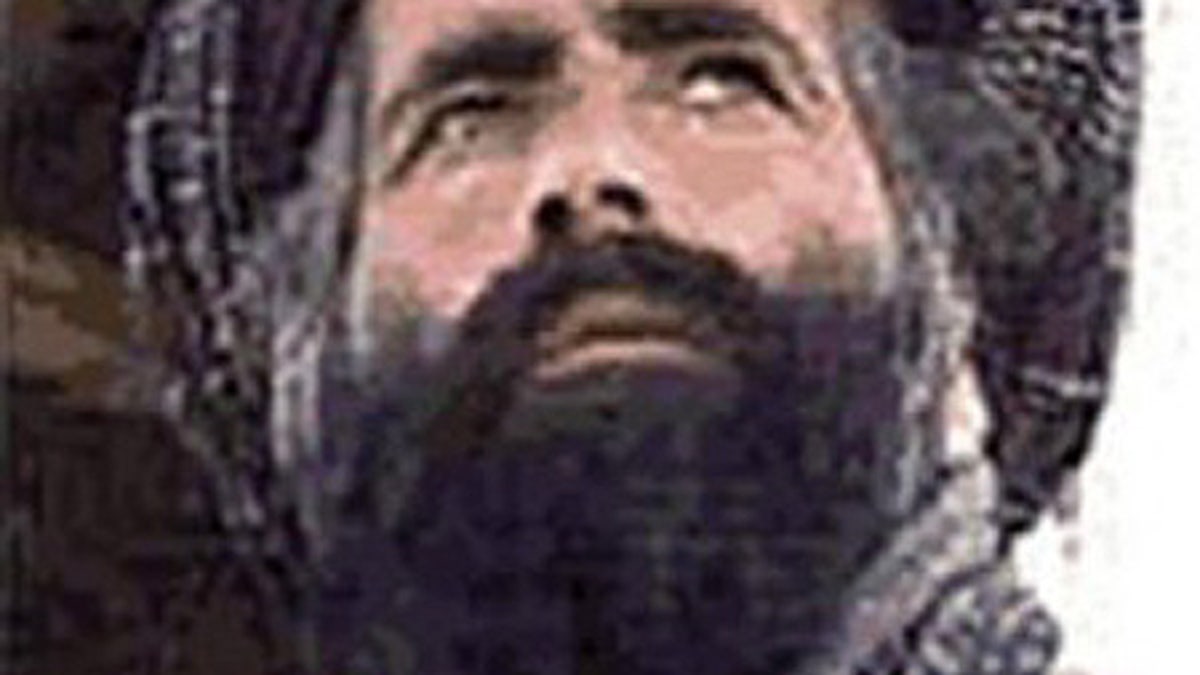
ISLAMABAD, Pakistan -- With the U.S. looking for a way to reconcile Afghanistan's warring factions and get out, the top U.S. envoy is possibly looking to make a negotiating partner out of Mullah Mohammed Omar, the one-eyed Taliban leader.
Imtiaz Gul, head of the Center for Research and Security Studies in Islamabad, Pakistan's capital, told The Associated Press that the United States is trolling for Taliban officials to talk peace with before the July drawdown of American troops.
Washington's special envoy Marc Grossman, therefore, is trying to access the one-eyed Taliban leader, Gul said, recounting a meeting last month in Islamabad.
Gul said Grossman told him that he was looking for "persons or groups who can provide us access to Mullah Omar, who can demonstrate their ability to approach Mullah Omar and get him onboard, who can get through to Mullah Omar to open talks."
Finding a genuine interlocutor is a slippery business. The U.S. was duped last year when a Quetta, Pakistan, shopkeeper posed as the Taliban's former aviation minister, Mullah Mohammed Akhtar Mansour, and met twice with Western officials before they realized they had been tricked.
But that hasn't stopped the U.S. from reaching out. According to The Associated Press, the United States held a series of meetings with more than one Taliban member, and has reached out to former Taliban information minister Qatradullah Jamal.
It has also contacted representatives of alternative terror groups Hezb-e-Islami, led by U.S.-declared terrorist Gulbuddin Hekmatyar, and the Haqqani network, considered by NATO and the U.S. to be their deadliest enemy in Afghanistan. According to western diplomats in the region, the U.S. is trying for exploratory contacts with Ibrahim Haqqani, a brother of group leader Jalaluddin Haqqani.
While less a household name in the U.S. than Mullah Omar or even the Haqqanis, Hekmatyar is a special brand of nasty. He hid Usama bin Laden for at least 10 months after the Al Qaeda leader fled the Tora Bora mountains of eastern Afghanistan in November 2001, according to prisoners at the U.S. military lockup at Guantanamo Bay, Cuba.
A Taliban enemy, he has complicated attempts by the U.S. to create a political settlement among warring factions, vowing instead to fight Mullah Omar's group, which is what his warriors are doing in the eastern Nangarhar province. Apparently Omar feels the same way about him.
Hekmatyar, an ethnic Pashtun -- like most Taliban -- who lived in exile in Iran during Taliban rule, was also an enemy of the Northern Alliance, the U.S. allies who helped ward off the Soviets in the late 1980s and the Taliban in 2001.
The Northern Alliance itself has a checkered past. When it last ruled Afghanistan between 1992 and 1996, until being thrown out by the Taliban, its relentless fighting destroyed giant swaths of Kabul and left 50,000 people, mostly civilians, dead.
Last month, the German weekly Der Speigel reported that Germany had helped U.S. officials contact Mullah Omar's personal secretary, Tayyab Aga. He was the last public voice of the Taliban before fighters fled southern Kandahar province in December 2001, shortly after U.S.-led invasion. While Germany has been involved, opening of contact with Aga was an American initiative, a western diplomat in the region told The AP.
The last time Aga was seen in public was Nov. 21, 2001 when he conducted a final Taliban press conference in Spin Boldak in southern Kandahar Province. The Taliban fled Kandahar on Dec. 7, 2001, allowing Hamid Karzai to be named president and the U.S.-led coalition to announce that the Taliban had been routed countrywide.
At that time, Aga was 25 and Omar's personal secretary. A relative newcomer to the Taliban, Aga was not a member of the Taliban inner circle when it ruled Afghanistan between 1996 and 2001, nor did he have battlefield experience.
But he spoke English well and was a prominent face in the last years of the Taliban's rule, acting as Omar's spokesman.
Since 2001 his name has not emerged as a member of the so-called Quetta shura, named for Pakistan's southeastern city where many of the Taliban are said to live or transit with relative ease.
It's not clear whether Aga still has links to Omar or whether Omar has okayed the U.S. contacts. Taliban have flatly denied anyone is talking to the U.S. or to the Afghan government. Senior Pakistani security officials who spoke on condition they not be identified, said Omar is rigid in his refusal to negotiate.
Pakistan, which remains angry about the May 2 raid into the country by U.S. Navy SEALS that killed bin Laden, is a critical link to all the warring factions, and its cooperation is crucial to U.S. military on the ground in the region as well as a U.S. exit in Afghanistan.
The Northern Alliance accuses Pakistan of supporting the Taliban, sending them across the border to carry out suicide bombings that destabilize Afghanistan.
Afghanistan's former intelligence chief-turned-politician Amrullah Saleh has lumped Pakistan in with the Taliban as enemies of Afghanistan. He has previously accused Islamabad of trying to return the Taliban to power as a proxy.
He said the Afghan government has not set out requirements for prospective talks with the Taliban.
"All the time the government calls the enemy 'brothers' while the enemy is insulting them, conducting suicide attacks, placing roadside bombs and killing innocent people," Saleh said.
Nader Nadery, of Afghanistan's Human Rights Commission, said war fatigue in the United States and NATO was increasing pressure for talks that, he said, "will bring a short-term end to violence but lead to more fighting when the (U.S. and NATO) forces leave."
The Associated Press contributed to this report.












































